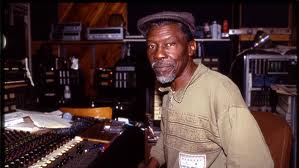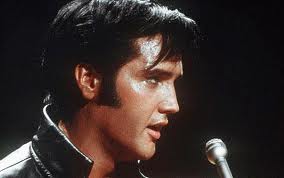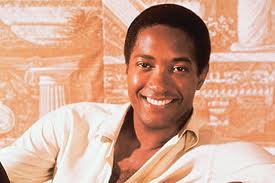
To the superstitiously inclined, the year 2013 may very well be viewed with pessimism, 13 being a number not held in reverence by such persons. With all the hardships of the past year and the setting of the stage by the authorities for a repeat performance, one can’t help but tend to agree.
On the musical side, things are not much better, with the quality and presentation of dancehall music today showing no sign of real improvement.
With the month of January only six days old, there is still much time to correct the maladies that exist.
With all of that, there is some consolation in the knowledge that the month of January has, in the past, produced some great music, and some of the most illustrious figures in entertainment.
On the Jamaican scene, producer Clement ‘Coxsone’ Dodd of Studio One fame, and one of the cornerstones of early Jamaican music, was born on January 26, 1932.

THE BIRTH OF ROCKSTEADY
Out of his nursery, came stalwarts such as Alton Ellis, Bob Marley and John Holt. But unknown to many, Dodd sang in duet with Jackie Mittoo as the ‘Soul Agents’ on a piece titled Get Ready Rocksteady, and lay claim to being one of the first rappers (DJ), when he accompanied Delroy Wilson on the ska piece, Prince Pharaoh.
Saxophonist extraordinaire, Roland Alphonso, born in Cuba on January 12, 1931, also played important roles at Studio One, including being the leader of the Soul Brothers band that backed many top hits at that institution.
The multi-faceted actor, broadcaster and recording artist, John Jones, was born on January 30, 1947.
He scored a slew of covers on the recordings, Delilah, Sylvia’s Mother, and Where Do The Children Play, while excelling with the afternoon programme Happiness Homecoming at the Jamaica Broadcasting Corporation (JBC).
His exploits with Father Holung’s production, and as pastor in the TV series Royal Palm Estate, are also well known.
The month of January is also graced by the birthdate of several overseas stars.
David Ruffin for instance, born January 18, 1941, helped in no small way in putting Motown on the international map. His supreme lead vocals, placed the Temptations among the top vocal groups of the 1960s with the hits My Girl, Since I Lost My Baby, Don’t Look Back and Ain’t Too Proud To Beg.

Elvis Presley, the acclaimed ‘King of Rock and Roll’, graced the earth with his presence from January 8, 1935 to August 16, 1977. He has the distinction of being the first recording artist to have three consecutive No.1 hits on the Billboard charts, with his breakthrough being Heartbreak Hotel in 1956 for RCA.
But perhaps the most important of all the great artists born in January, was Sam Cooke (January 22, 1931).
A notch above all others, he was widely regarded as the most gifted and naturally talented singer of all time.
With a voice that sometimes rose above the realm of human description, Cooke’s smooth, crystaline delivery, with an alchemical fusion of pop and gospel, laid the foundation for the rise of modern soul music, which disciples like Otis Redding, Solomon Burke, Al Green and Luther Vandross continued.

One could easily fall into a reverie, while listening to Cooke’s sweet crooning on the spiritually charged, civil-rights-oriented, posthumous 1965 release, A Change Is Gonna Come.
I was born by the river in a little tent,
and just like the river I’ve been running ever since.
It’s been a long time coming, but a change is gonna come,
Or to his entreaties to the Roman God of love, Cupid, to:
Draw back your bow
and let your arrow flow
straight to my lover’s heart for me.
This journey into the highest realms of vocalising takes us into the distant past when Cooke made his first pop hit recording in 1957, You Send Me. His first set of recordings, however, were in the gospel vein and included Be With Me Jesus, Nearer To Me (1955), Touch The Hem Of His Garment (1956).
This early gospel influence Cooke acquired through close association with his travelling, preacher-father, Charles Cooke. That influence was further entrenched by Charles Cooke’s hand-clapping, spirit-filled church services in Chicago where Sam Cooke grew up, after moving there with parents from Clarkesdale, Mississippi, the place of his birth.
Performing only gospel music as a teenager, Cooke gradually emerged as something of a gospel sex symbol with his emotional, quivering style, which attracted legions of young females while he sang with leading gospel group The Soul Stirrers.
However, Cooke soon became wary of the confines of gospel and its attendant low wages and began leaning towards secular music. He was equally conscious of the hurt he would inflict on his gospel fans, and decided to enter this new arena with the name Dale Cooke, so as not to offend them.
His career really took off when he signed to Keen Records in 1956, and took the world by storm the following year with his majestic self-penned recording, You Send Me, which sold two million copies.
Enjoying the best of both worlds, Cooke began packing smokey night clubs more than church pews, and earned the wrath of his former fans, who felt he had abandoned them. Cooke, nevertheless pressed on with his secular recordings, unleashing a string of R&B/pop hits like I’ll Come Running Back, Win Your Love, Sentimental Reasons (1958), Only 16 (1959) and Wonderful World (1960).
Signing a lucrative contract with the giant RCA label in 1960, Cooke continued his long string of Top-10 hits with Chain Gang, Cupid,Twisting The Night Away, Bring It On Home To Me, Send Me Some Loving and Another Saturday Night, between 1960-1963. But by 1964 he was returning to his social roots and he used his superstar stature to break down the colour lines between blacks and whites.
Cooke’s life was one beset with tragedies, In 1958, he escaped with minor injuries in a motor vehicle accident in which Lou Rawls was seriously injured.
The following year, his first wife was similarly killed, and in 1963 his youngest son drowned in the family swimming pool.
Then at the height of his career, Cooke was fatally shot on December 10, 1964 by a Los Angeles hotel manager who he attacked and accused of harbouring his hotel roommate who had fled their room with his entire clothing.
broyal_2008@yahoo.com


